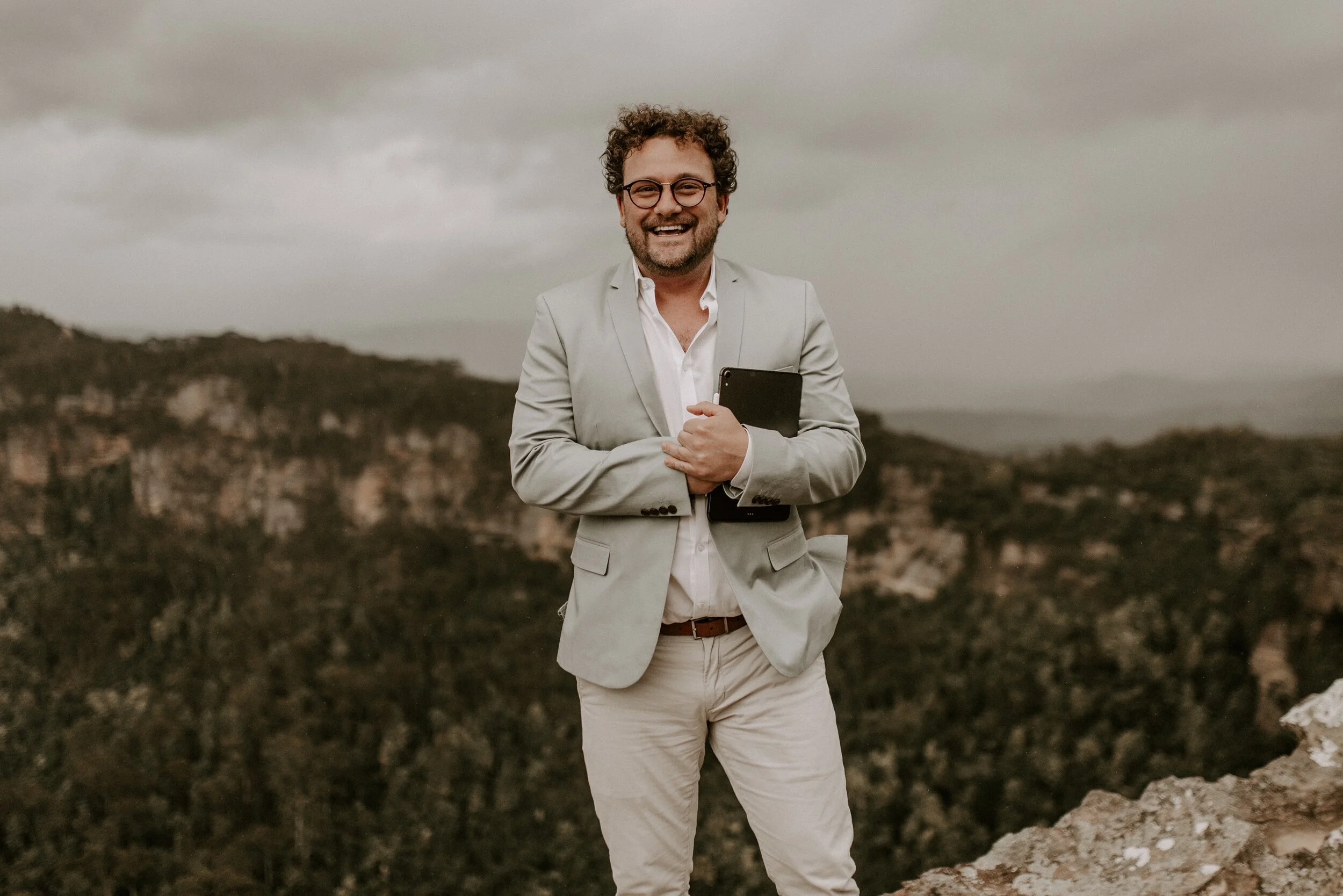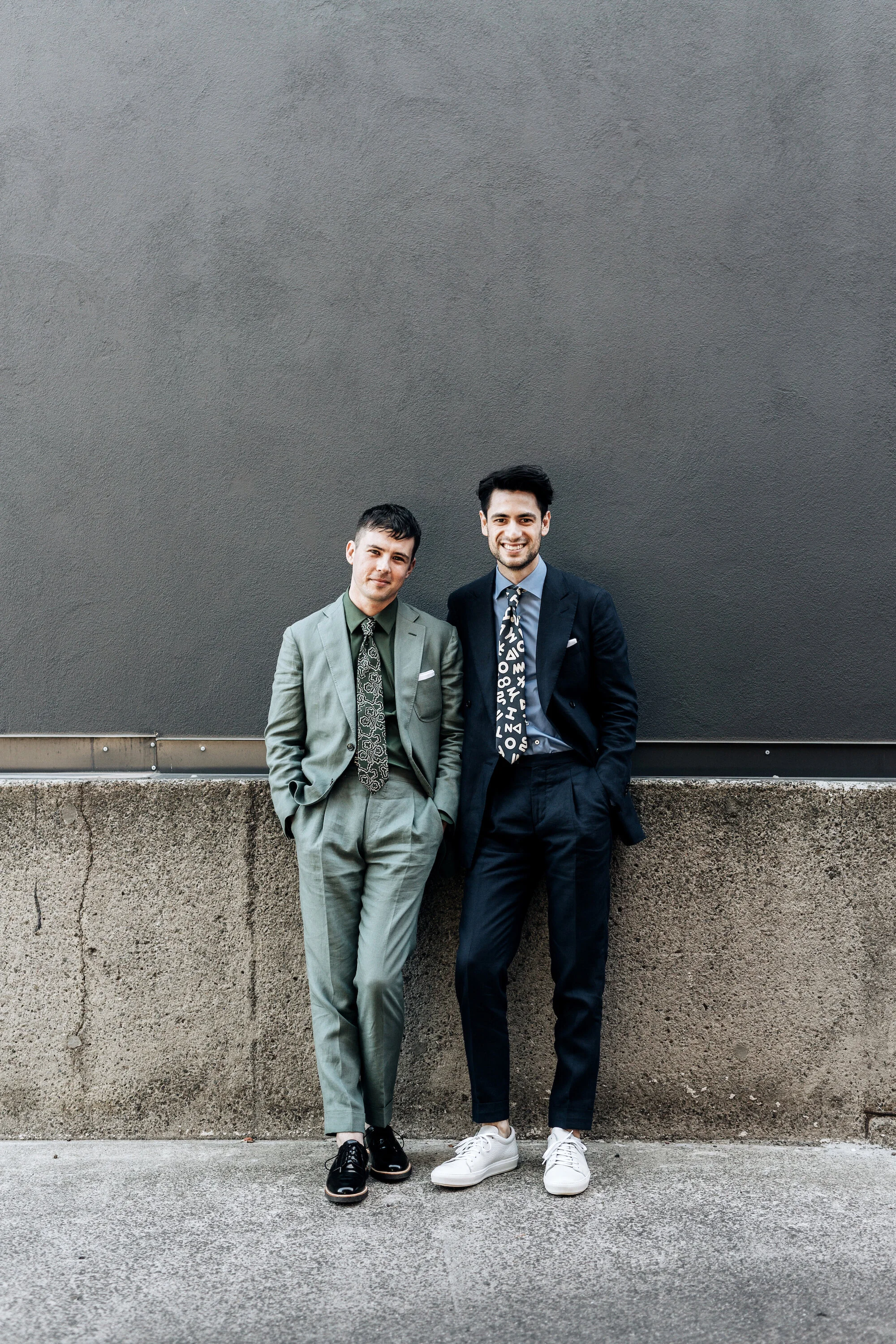3 Ways to Make Your Wedding Ceremony More Inclusive
Wedding celebrants are the caretaker of your wedding ceremony and are usually the first to speak and welcome the guests to your wedding. There's a distinct difference between saying "welcome" and making people genuinely feel welcome. I sat down with renowned wedding celebrant Robyn Pattison to discuss this idea of welcome and inclusion, and the role wedding celebrants can play in making your guests feel more included at your wedding ceremony.
Words Hank Paul
——
1. Generosity of Spirit
Robyn unpacked the idea of generosity of spirit, and what it means to be generous to your guests through thoughtfulness. She explained “the word ‘guest’ has connotations. If you are my guest, I should look after you. I should comfort you. I could supply a few little bits and pieces that show empathy.”
Here are some questions for you and your fiance to ponder together when planning your day:
Are our guests going to feel comfortable?
Have we provided them with water on a hot day?
Is our venue fully accessible?
Is there anything we can do to let them know that we appreciate them being at our wedding?
Approaching the wedding day with your guests in mind is an extremely generous way of sharing the love and celebration you already feel with the people who matter the most.
2. Acknowledgment of Country
As long as systemic racism exists, the work of anti-racism is needed to address the oppressive structures of white supremacy. One respectful thing you can do here in Australia is ask your celebrant to conduct an Acknowledgement of Country prior to the start of any formalities.
An Acknowledgment of Country is an opportunity to pay respect to the Traditional Owners of the land - Aboriginal and Torres Strait Islander people. An Acknowledgment of Country also serves as a way of inviting your guests to be included in the story of reconciliation between First Nations people and settlers.
Here is some suggested wording:
“Before we begin, (Name) and (Name) have asked me to to acknowledge that this wedding is being held on the traditional lands of the (appropriate group) people of the (name of Aboriginal nation) nation, and they would like to pay their respect to Elders both past, present and future.”
or
“(Name) and (Name) would like to begin by acknowledging the Traditional Owners of Country throughout Australia and recognise their continuing connection to land, waters and culture. It always was, and always will be Aboriginal land. They would also like to pay their respects to Elders past, present and emerging, and acknowledge any Aboriginal people who may be with us today.”
3. Inclusive Language
Inclusive language is not a new idea, but it has finally started receiving the mainstream adoption it deserves. As a member of the LGBTQI community, inclusive language has been a significant way for me to signal to someone that I am a “safe” person. Think about the following two questions:
“So, have you got a girlfriend yet?”
Or
“So, are you seeing anyone yet?”
There’s a massive difference in the framing of these questions, as the latter allows the person answering to feel more free to answer truthfully, rather than according to a prescribed heteronormative assumption. This can be true at weddings as well.
Robyn says "the language of celebrants has had to change not just with the Marriage Act with marriage equality, but also how we address people. Instead of 'hello ladies and gentlemen' we're having to change it to 'friends, family, special guests, everyone'. Those things make people draw in.” Inclusivity is about language. And language is how we connect with people. And connecting with people is ultimately what we are trying to do at a wedding.
Inclusion at your wedding does not need to be a huge or daunting task. But by taking some time to fully consider the people who you have invited to be guests on your special day, you are making the effort to convey a true signal of love and appreciation for the communities that have supported you.
This article was written by contributor Hank Paul, a Sydney Wedding Photographer. For his full conversation with Robyn Pattison about inclusive wedding ceremonies, head here.





